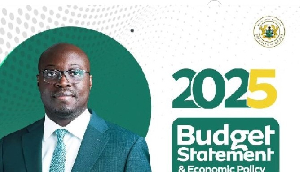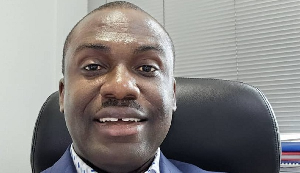Public outcry over the influx of fake and sub-standard drugs into the country and its health implications on Ghanaians has provoked the Economic and Organised Crime Office (EOCO) to investigate manufacturers and distributors of such drugs on the Ghanaian market, and, if possible, prosecute those found guilty of the offence.
EOCO, The Chronicle learnt, has huge data of intelligence on the aforementioned subject to rely upon for its investigations, which, inside sources noted, would not only be limited to manufacturers and distributors, but also all those involved in the supply chain, including, pharmacists and chemical shops.
The Director of the EOCO, Mr. Biadela Mortey Akpadzi, in an exclusive interview with The Chronicle, said their intervention, aside ensuring public health safety, also sees the influx of fake and sub-standard drugs into the country as organised crime, and has vowed to fight “tooth and nail” to halt the practice.
“We have decided to go down and establish the facts. And if there is any prosecution, we will do that,” Mr. Akpadzi noted.
According to him, his outfit was going to investigate a host of companies and state institutions involved in the illicit trade in fake and sub-standard drugs in the country.
To begin with, EOCO would investigate the Ministry of Health (MoH), headed by Ms. Sherry Ayittey, for its alleged importation of sub-standard psychiatric medicines in 2010 (although such products were re-exported to its country of origin), and the 130 million pieces of substandard condoms worth US$6 million.
Available information to The Chronicle indicates that the World Health Organisation (WHO), which financed the cost of the “Be Safe Condoms”, raised issues about its quality, but officials of the MoH involved in the said transaction did not heed their advice.
The security agency is also expected to investigate Tobinco Pharmaceuticals Limited for its importation of Gsunate Suppository drugs, anti-malaria drugs, for the treatment of malaria in children.
Bliss GVS Pharma of India, the source from which the Gsunate Suppository drugs were imported into the country, would also come under scrutiny by the Economic and Organised Crime Office.
Mr. Akpandzi also told The Chronicle that his outfit arrested and granted bail to the Executive Chairman of Tobinco Pharmaceuticals Limited, Samuel Amo Tobin, last week Friday, pending further investigations into the matter. His Indian partner, the Director of Bliss GVS, S. N. Kamath, is on the radar of the EOCO for questioning.
According to the EOCO boss, should Mr. Kamath turn down an invitation, the security agency would have no option than to explore other avenues at its disposal, including, but not limited to the services of Interpol.
Companies that came under the eagle eyes of the Food and Drugs Authority (FDA) in the past, which include Osons Chemists and Semanhyia, would also be investigated.
The security agency considers the influx of fake and sub-standard drugs in the country as a “serious offence” as spelt out in the Economic and Organised Crime, Act, 2010 of Act 804 subsection 74, being the law establishing the security agency.
Under the above-mentioned Act, “serious offence” includes: (a) participation in an organised criminal group, terrorism and terrorist financing, money laundering, human trafficking, people smuggling, sexual exploitation, illicit trafficking in narcotic drugs, illicit arms trafficking, trafficking in stolen and other goods, corruption and bribery, serious fraud, counterfeiting and piracy of products, smuggling, extortion, forgery, insider trading and market manipulation.”
According to Mr. Akpadzi, investigations into the trading of fake and substandard drugs in the country would be extended to the point of entry, to establish “how the drugs came in, under whose authority were the drugs cleared and those who examined the drugs.”
“Beyond that, we will go into see whether those cleared to have met all the standards were dutifully paid for, and whether the companies are paying their corporate taxes, employee taxes, SSNIT contributions, as well as VAT,” he argued, noting, “We are going into all issues to ensure that they are complying with the law.”
Asked why such an intervention now, Mr. Akpadzi replied: “If such things become a national issue, and nobody is seen doing nothing about it, it becomes an impunity. But, as far as EOCO is concerned, and in the interest of public health safety, we will not give room for impunity.”
He told The Chronicle that the EOCO was going to be active to prevent fake and substandard drugs from coming into the country, and would actively work hand-in-hand with the Food and Drugs Authority (FDA), as well as the Ghana Standards Authority (GSA), to achieve its aim.
“We are building criminal dockets – so if anybody is found breaching the law, he or she will be prosecuted,” noted Mr. Akpadzi.
General News of Friday, 25 October 2013
Source: The Chronicle







![Isaac Kwadwo Ampong [L] and President John Mahama Isaac Kwadwo Ampong [L] and President John Mahama](https://cdn.ghanaweb.com/imagelib/pics/549/54996138.295.jpg)





